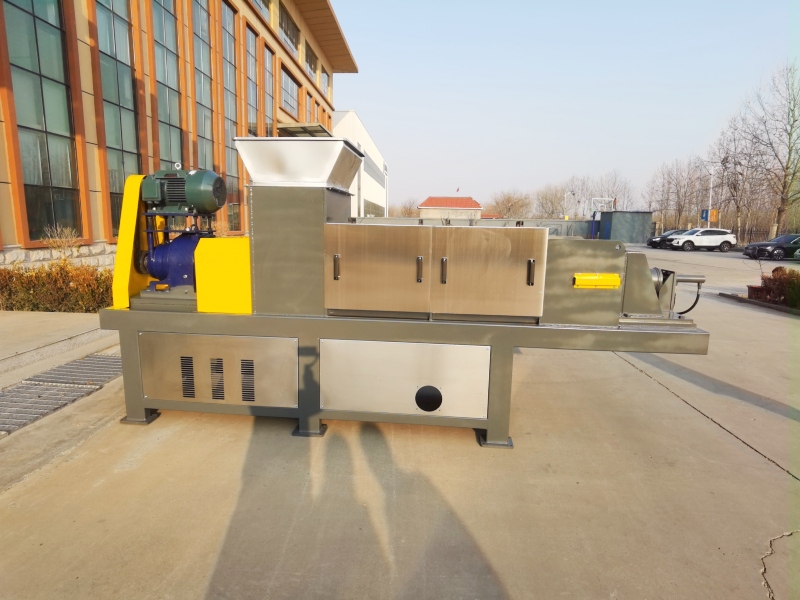
Introduction:
In recent years, the need for sustainable and efficient waste management solutions has become increasingly evident, especially in the context of industrial processes. One such innovative solution is the industrial waste vegetable dehydrator machine, designed to effectively reduce and manage organic waste generated in various industries. This article explores the key advantages of these machines in addressing environmental concerns and promoting sustainable practices.
Resource Efficiency:
Industrial waste vegetable dehydrator machines play a crucial role in resource efficiency by converting organic waste, such as vegetable scraps and peels, into valuable resources. Through the dehydration process, these machines significantly reduce the volume of waste, allowing for more efficient use of disposal space.
Reduced Environmental Impact:
By dehydrating vegetable waste on-site, industries can minimize the need for transporting large volumes of organic waste to landfills. This reduction in transportation not only lowers carbon emissions but also mitigates the environmental impact associated with landfill disposal, such as soil contamination and greenhouse gas emissions.
Cost Savings:
The use of waste vegetable dehydrator machines contributes to cost savings for industries. By converting organic waste into a dehydrated, condensed form, businesses can potentially reduce disposal costs associated with waste removal and landfill fees. Additionally, the resulting dehydrated material can be used for various purposes, further enhancing cost-effectiveness.
Energy-Efficient Operation:
Modern industrial waste vegetable dehydrator machines are designed with energy efficiency in mind. These machines utilize advanced technologies to dehydrate waste at lower energy costs, making them a sustainable solution for industries seeking to minimize their overall energy consumption and environmental footprint.
Versatility in Application:
Waste vegetable dehydrator machines are versatile in their application. They can handle a wide range of organic materials, including various types of vegetable waste. This adaptability makes them suitable for integration into different industrial processes, ensuring a customized waste management solution for diverse industries.
Compliance with Regulations:
Many regions have strict regulations regarding the disposal of organic waste, with a focus on reducing environmental impact. Industrial waste vegetable dehydrator machines aid businesses in complying with these regulations by providing an efficient and eco-friendly means of managing organic waste in accordance with environmental standards.
Enhanced Sustainability Practices:
Incorporating waste vegetable dehydrator machines into industrial operations aligns with the growing global emphasis on sustainable business practices. By responsibly managing organic waste, industries contribute to the circular economy and demonstrate a commitment to environmental stewardship.
Conclusion:
Industrial waste vegetable dehydrator machines offer a range of advantages for businesses aiming to improve their waste management practices. From resource efficiency and cost savings to reduced environmental impact, these machines represent a sustainable solution that aligns with the broader goals of creating a more environmentally conscious industrial sector. As industries continue to prioritize sustainability, waste vegetable dehydrator machines are poised to play a pivotal role in shaping the future of responsible waste management.




If your company wants to establish a business relationship with us, please briefly describe the cooperation intention and send an email to:chuantaiscrewpress@gmail.com























































































![[list:title]](/static/upload/image/20240528/1716877114510915.jpg)